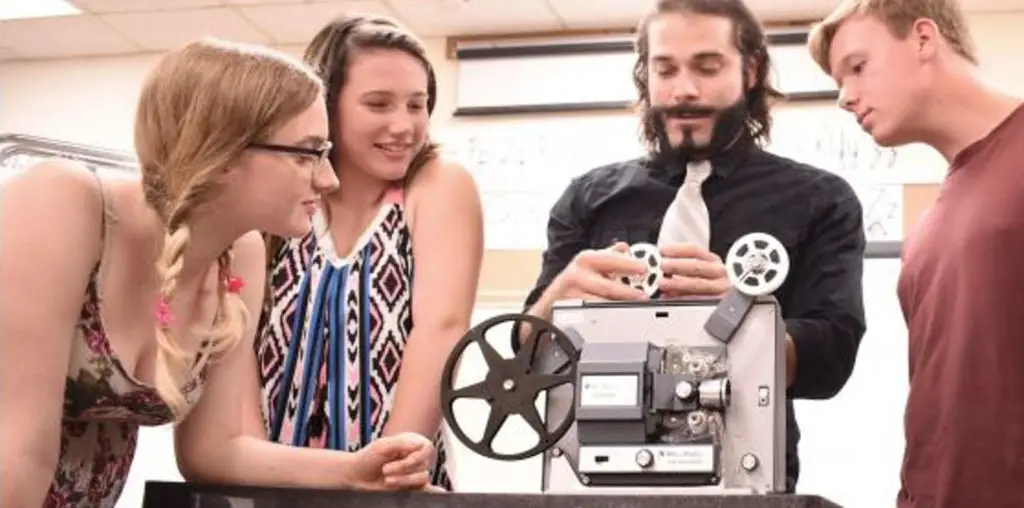
Rich Sturdevant’s feature film Envisage takes an experimental approach to its filmmaking, opting to give us the various characters’ stories by using the camera as their subjective point-of-view. In this way, for each segment covering a specific main character, we see exactly what they see, hear what they hear and, often, get the running voice over from inside their heads. The result is a unique idea to commit to for an entire feature film that is interesting at moments, tiresome in others.
The three main characters whose POV we get are separated in their own segments, though the three do crossover at certain moments. First up is Nelson (Fedjwick Sylvanus), a man who might be agoraphobic, possibly coping with obsessive-compulsive disorder (among any number of other anxiety issues), whose day revolves around watching an Audrey Hepburn movie and talking to his friend, Jerry, on the phone. When Nelson’s computer doesn’t boot up, he’s forced to head out to the local video store to find a copy of the film he wants to watch, an uncomfortable adventure that we undergo with him.
Next up is Sophie (Lizz Henderson), whose girlfriend Laura (Laura Rice) has just popped the big question. Laura and Sophie spend the day together, discussing their engagement and generally enjoying each other’s company, before Sophie has to head off to her residency (and reoccurring argument being the little amount of time the two get to see each other due to Sophie’s job). As they split, it becomes clear that Sophie is going somewhere, but it isn’t work.
The final segment follows a stoner video store employee, Bryan (Heath Silvercloud), who has cameo roles in the previous two segments. He goes about his day, getting stoned, selling weed and working at the video store. Not all that interesting or exciting a story, really, until he gets home after work.
Which brings out my main issue, as mentioned earlier, with the film. While the characters do have interesting aspects to them, for the most part time spent in their head isn’t all that fun or entertaining. Opening with the Nelson segment, for example, may be a nice approximation of the Hell going on in his head, but it also turns into the audience’s Hell. By the time you get to Sophie’s segment, you’re so drained by Nelson that it’s hard to re-engage with the film. Likewise, wrapping up with Bryan’s plight at the video store; if you’ve ever worked at a video store, or retail in general, you’ve got an idea of how exciting that can be.
That said, both Sophie and Bryan’s segments have twists to them that elevate their stories, and Bryan’s segment even has a moment that re-contextualizes much of what we’ve experienced in the Nelson segment. In other words, there are some truly intriguing moments to be found in the film, but maybe not enough to balance out the tedium.
Kudos must be given to the camerawork and the filmmaking that enabled that first-person point-of-view to work as well as it does. For the most part, unless you see the main characters in a mirror or in another segment, it’s as if you are indeed seeing, and experiencing, the world as they are. I can really only think of one or two moments where the camera seems to drift into a third person perspective, but due to the faithfulness of the camera to its central conceit throughout, I’m willing to accept that maybe there’s a mirror’s view that I’m seeing, and just didn’t notice it at first.
Envisage is an ambitious film with a very cool premise, which from a technical standpoint is almost executed flawlessly. From a story standpoint, the film is a little too realistic in its telling and therefore a little too boring in its execution. Really, it could all come down to setting the table with Nelson, whose inner-commentary and life is so overwhelmingly exhausting it makes the rest of the film that much harder to get through.
This film was submitted for review through our Submission for Review system. If you have a film you’d like us to see, and we aren’t already looking into it on our own, you too can utilize this service.

